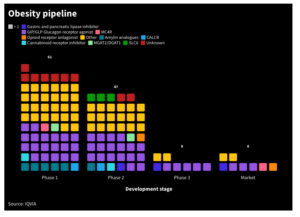
Semaglutide and tirzepatide significantly improve heart health
Semaglutide (Ozempic®) and Tirzepatide (Mounjaro®) not only promote weight loss but also significantly reduce the risk of major cardiovascular events in patients with type 2 diabetes. Real-world evidence from the Technical University of Munich and Harvard Medical School shows up to 18% lower risk of heart attack and stroke, highlighting the growing potential of GLP-1 therapies in cardiometabolic care.
GLP-1 receptor agonists, including Semaglutide and Tirzepatide, are transforming the treatment landscape for type 2 diabetes. Beyond effective weight management, emerging evidence now demonstrates substantial cardiovascular benefits, supporting their role in comprehensive cardiometabolic therapy, reports a German-US research team in Nature.
Real-world cardiovascular benefits
Researchers at the Technical University of Munich (TUM) and Harvard Medical School analysed extensive US insurance claims data, capturing outcomes in everyday clinical practice. Key findings include:
-
Semaglutide reduced the risk of stroke and myocardial infarction by 18% compared to Sitagliptin.
-
Tirzepatide lowered the risk of stroke, myocardial infarction, and death by 13% compared to Dulaglutide.
These results indicate a cardioprotective effect beyond weight loss, although the underlying mechanisms are still under investigation.
Clinical trials
Real-world outcomes are consistent with randomised controlled trials:
-
Eli Lilly’s SURPASS-CVOT programme confirmed Tirzepatide significantly reduces cardiovascular events in high-risk patients.
-
Novo Nordisk’s SUSTAIN-6 and STEP-HFpEF trials demonstrated Semaglutide lowers cardiovascular risk in type 2 diabetes and heart failure with preserved ejection fraction (HFpEF).
A recent JAMA study (PMID: 40886075) found Semaglutide and Tirzepatide can reduce cardiovascular risk in HFpEF patients by over 40%.
Semaglutide vs Tirzepatide
Although manufacturers emphasise differences between products, the TUM study shows only minor distinctions in cardiovascular outcomes between Semaglutide and Tirzepatide. This clarity is crucial for clinicians making evidence-based decisions in routine practice.
The data provide robust support for integrating GLP-1 therapies into cardiometabolic treatment strategies, particularly for patients with type 2 diabetes at elevated cardiovascular risk. Early adoption could reduce the incidence of stroke, myocardial infarction, and all-cause mortality while offering effective weight management.
Conclusion
Semaglutide and Tirzepatide offer dual benefits for patients with type 2 diabetes: weight reduction and cardiovascular protection. Real-world evidence complements clinical trials, providing clinicians and the biotech industry with actionable insights for patient care and therapeutic innovation.


 © Bayer Leverkusen
© Bayer Leverkusen IQVIA
IQVIA